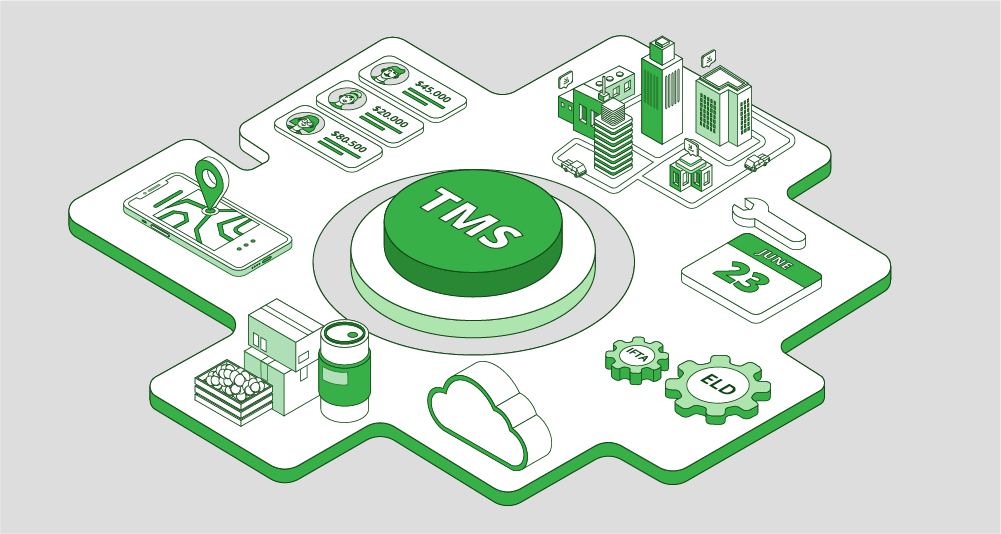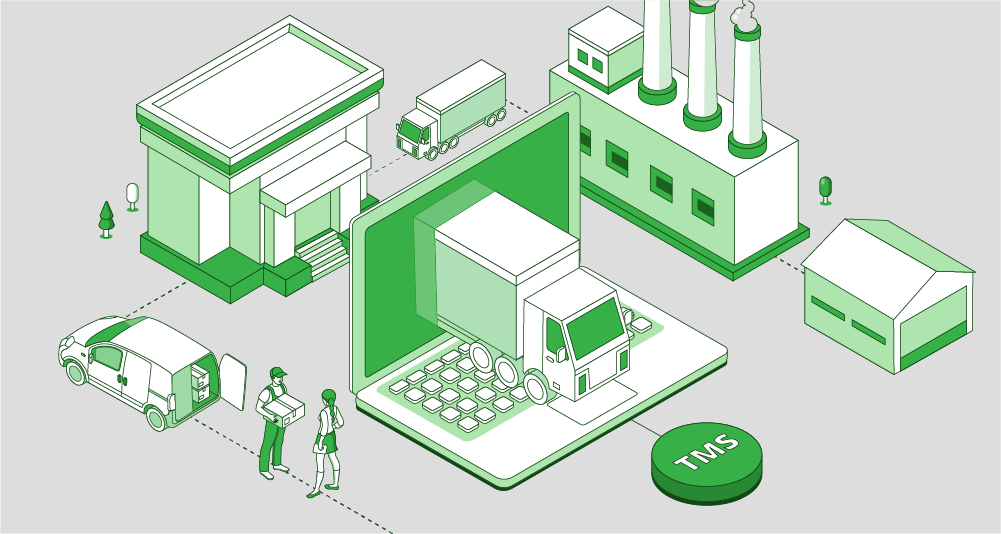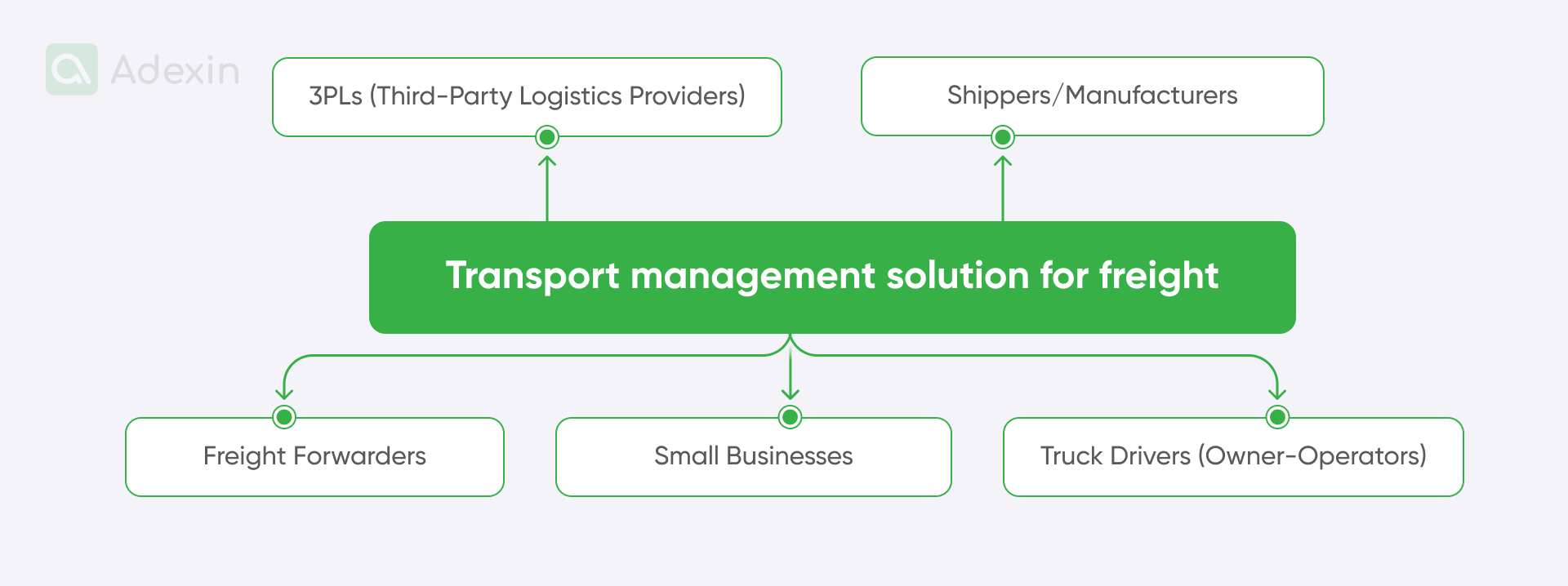A transport management system (TMS) is software that facilitates the entire shipping process, from carrier management through procurement to all delivery arrangements. This software can help companies implement various strategies to secure the shipping process end-to-end.
There is a fact stated in the Supply Chain Executives survey that 45% of executives observed a huge increase in performance for order fulfillment. It was while 43% noticed a cost savings in shipping-related processes. There is also a fact that agile IT systems, automation, and IoT devices are contributing to transportation and warehouse cost reductions of about 15-30%. It also translates into more agile supply chains where companies can lower inventory by about 40%.
With these stats in mind, we can frankly state that there is a huge prospect for investing in TMS software, which significantly impacts transport operations. In this article, we want to focus, in particular, on the shipping process and how it is handled through the TMS system. You'll see where one of the TMS modules can cover the complexity of the shipping process.
What is shipment management software?
The transport management system has built functionalities that help manage shipping. We can name it shipping management software, but it can be a broader solution. This is because when we think about managing transport, it cannot fall apart from inventory management and all operations handled in the warehouse. So, TMS provides a centralized platform for managing all aspects of the shipping process, from order creation and fulfillment to tracking and delivery. Nevertheless, we can point out certain elements that only refer to the shipping process within a TMS system.
Here are the key features and functionalities of shipment management software:
Order management
It integrates with eCommerce platforms and other sales channels to automatically import orders to the warehouse. When an order is collected in the warehouse, TMS can allocate it to the right shipment. So, it supports the shipping process semi-automatically because we still need to book a carrier or any other type of freight. But for this purpose, we can still use another functionality of the TMS system.

Carrier selection and rate procurement
This module of TMS connects with multiple carriers to compare rates and help you choose the most cost-effective options. You can book the track shipments and carriers for various directions, whether they are in the domestic market or the global market. You can integrate available transport services from carriers of your choice that are linked to your network.
Shipping label creation and printing
Generating shipping labels with barcodes and other necessary information is crucial for TMS and seamless shipping documents. The TMS should have functionality that supports various label formats and printers. In many cases, companies are using NiceLabel integration, which is a nice way to deploy a robust solution integrated with TMS and covers the needs of labeling systems.
Shipment tracking
This function in TMS provides real-time visibility into the location and status of shipments. It allows businesses to proactively address any delays or issues. It also enables keeping fingers on the consignment so all stakeholders are informed about the shipment's current status, and you can remain transparent about it.
Delivery management
At this point, TMS is needed to manage delivery schedules and optimize routes, and assignments for trucks. Overall, it provides tools for proof of delivery and exception management. In this case, we may say that you may face a delay with loading due to a broken dock gate or anything that prevents you from delivering goods on time. You can manage it as an exception.

Returns management within a TMS
This function streamlines the returns process by providing tools for creating return labels. If you have already integrated a side system, such as order management, you can track returns and issue refunds.
Reporting and analytics
The TMS system should have functions to generate reports on key shipping metrics, such as on-time delivery rates, shipping costs, and customer satisfaction. This is essential when we think about a data-driven decision-making process. Some transportation management software can also have a built-in function with a clear overview, such as a dashboard with stats, graphs, and charts.
Integration with other systems
Transportation management software capabilities shouldn't limit its integrations with other business systems, such as enterprise resource planning (ERP) and customer relationship management (CRM) software. These are to provide a seamless and efficient workflow and collaboration with legacy systems.
Transport management solution for freight
DHL's report in 2024 stated, based on Gartner Group research, that adoption of transportation management solutions continues to grow. Research predicts the global market for these applications will reach $1.7 billion by next year, and therefore, we can observe an annual growth rate of almost 7 percent.
These numbers only confirm that all companies are on the curve of changes toward digital transformation. At this point, we can see that the adaptation of TMS systems isn't only dedicated to companies that own the fleet but also to those that manage transporting. Among those companies, we can find freight forwarders who can still use transportation management software to manage their counterparts' freight. This is why the adaptation of TMS has become wide, and it doesn't facilitate the need for any assets. So, companies can link single truck owners and integrate them as carriers for the freight needs of their customers.

Here are a few examples of who else can use TMS for freight shipping, as there is a wide range of companies and individuals who can leverage the benefits of transportation management system:
Shippers and manufacturers. Companies that produce goods must transport them to customers, warehouses, or distribution centers. For example, that might be large manufacturers, retailers, and e-commerce businesses, such as Zalando, Alibaba, and AMAZON.
Third-party logistics providers (3PLs). TMS can be used by companies that specialize in managing the entire logistics and transportation process for other businesses. These companies use transportation management systems to optimize transportation for their clients.
Freight forwarders. Companies that arrange transportation for goods over long distances, often internationally. Transportation management systems help them manage complex shipments across multiple carriers without the necessity of keeping their own fleet trucks. Benefits are clear here as we're moving the freight forwarding business entirely to digital.
Truck drivers (owner-operators). Independent truck drivers can use transportation management systems to find loads, manage transportation finances, and optimize their routes. Sing truck owners can get private accounts and access to transportation management systems to oversee offers for choosing their load and direction for timely delivery. This functionality might be accessible from custom software development services. For example, we can refer to our mobile app, which we built and dedicated to truck owners so they could use it to navigate the routes, etc.
Small businesses with transportation needs. TMS is really dedicated to small businesses that occasionally ship goods. These businesses can benefit from basic TMS features to improve efficiency and reduce costs.
Need help with custom mobile app development?
Learn how we can boost your logistic business processes
Explore moreBenefits of the transport management solution for freight
TMS system yields benefits for all integrated, connected, and linked stakeholders to the network. Transportation management systems can be deployed in various ways with architecture that matches the company's internal needs. It is one of the best software, and its installation is based on custom software development. For example, if you could choose cloud-based and software-as-a-service (SaaS) models, these significantly increase the accessibility and affordability of transportation management systems (TMS) for businesses of all sizes. So, particularly, small and medium-sized enterprises can benefit from this.
Pursuing more statistics, the agility of TMS for SMBs is well-present, though numbers given by Gartner, who's reported a 15% growth in usage among SMEs. Some vendors even boast growth rates exceeding 20% in these markets. As a result, companies with annual freight spending as low as $15–$20 million can now leverage the benefits of advanced transportation management system platforms.
What are the benefits of using shipment management software:
Increased efficiency and productivity
The TMS system eliminates the need for manual data entry, label printing, and shipment scheduling, freeing up employees for more strategic tasks. The system automates manual tasks and, therefore, reduces errors. This is the perfect way to streamline the shipping process.
Reduced shipping costs
TMS software minimizes the risk of human error in order processing. For example, there are modules for address verification, which also lead to fewer shipping delays and returns. Within TMS, you can optimize carrier selection and negotiate better rates with carriers, because you can see the entire network of your carriers and filter out not only the best prices but also many other details on the carrier, like their historical data on performance and other transportation data.
Improved customer satisfaction
The TMS system truly automates order processing and picking, enabling faster order turnaround times and quicker delivery to customers. In fact, this benefit is also converting into accurate tracking information acquisition and faster delivery times.
Enhanced visibility and control
The TMS system for freight provides real-time insights into the shipping process, allowing businesses to address any issues proactively. It also helps businesses in the transportation industry allocate resources and human resources, such as truck drivers planning, more effectively by identifying areas for improvement and optimizing shipping operations.
Better decision-making and reliable transportation solutions
Provides data-driven insights to help businesses optimize their shipping strategies. System TMS generates reports and analytics on shipping performance. You can oversee costs and keep top priorities such as customer satisfaction, where your customers are also informed about strategic data on deliveries and overall quarterly reviews.
Reduces environmental impact
The TMS system minimizes carbon emissions by optimizing routes and consolidating shipments. This functionality utilizes eco-friendly packaging and delivery options. However, be aware that there are many issues related to using electric trucks, such as hidden costs, and these downsides can be minimized with the TMS system
Are you in search of a reliable tech partner?
Adexin can help with advanced logistics solutions
Contact usFinale takeaway
The adoption of TMS across a variety of sectors is increasing. We can include freight forwarders and even individual truck drivers here. This development in the transportation industry underscores its growing importance in the modern logistics landscape. So, there is doubt that the global market for TMS solutions will continue to expand. We can observe that each business involved in transpiration management that adopts TMS technologies will gain a significant competitive advantage.
Well, if you're ready to optimize your transportation operations, we know that implementing a TMS can significantly reduce shipping costs. You improve efficiency and also enhance customer satisfaction, which is crucial in building long-term cooperation. Whether you're a large manufacturer, a small business, or a freight forwarder, a TMS can provide valuable insights and automation to streamline your transportation logistics. Contact us today for a free consultation. Discover how a TMS can help you achieve your business goals.

